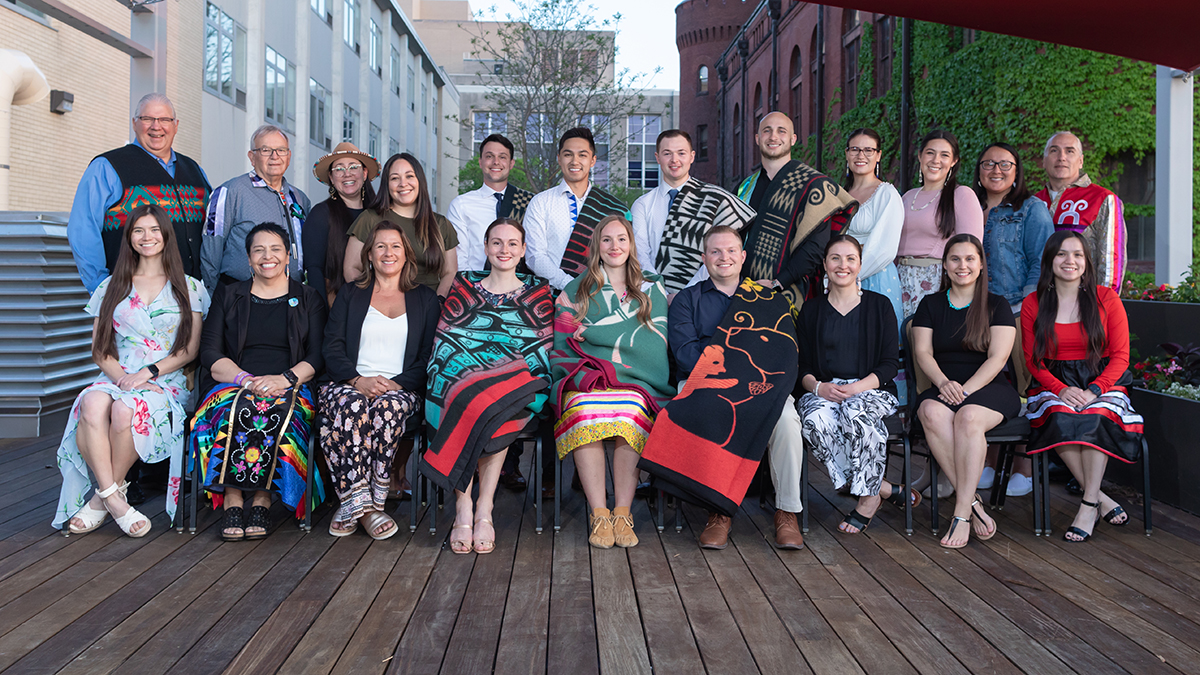Bolstering Native Students in Health Care
With support from the children of Ralph Olsen MD’54, a UW center is increasing the number of Indigenous people in medical fields.

The Native American Center for Health Professions seeks to improve the health and well-being of Native people and communities. Todd Brown
The Native American Center for Health Professions (NACHP) was founded in 2012 by Erik Brodt, an Ojibwe family medicine physician, to improve recruitment, retention, and graduation rates of Native American health professional students at UW–Madison. This center has provided instrumental support for Indigenous students from the Schools of Medicine and Public Health, Nursing, Pharmacy, Social Work, and Veterinary Medicine, with the goal of improving the overall health and well-being of Native people and communities.
Ralph “Doc” Olsen ’51, MD’54 generously gave annual contributions to support NACHP. He was a passionate pediatrician, a lifelong Wisconsinite, and a proud Badger. Born in 1929, Olsen came of age in Milwaukee and developed a profound love of the outdoors. During his journeys throughout Canada, Wisconsin, and the western United States, Olsen developed a deep respect for Native cultures and became aware of the unmet health care needs among tribal communities, leading to his desire to become a doctor.
Ralph met his wife, Eugenie, while they were both serving in the army. The couple worked hard, volunteered often, and raised their children to appreciate their values. “Our parents taught us to respect and preserve nature, explore the world, and learn about history, music, art, and different cultures,” says their daughter Jordana Lenon ’84, ’94.
Following the death of Ralph and Eugenie in 2023, their children created the Ralph N. Olsen, MD, Native American Scholarship for Health Professions. With gifts from donors like the Olsen family, NACHP is helping to increase the representation of Indigenous people in health care while building interconnected relationships among tribal communities.
Success is evident in the extraordinary graduation rates of all Native American and Alaska Native health professional students at the School of Medicine and Public Health, averaging just under 100 percent. And since the inception of NACHP, the number of Native applicants has increased by 240 percent.
“UW–Madison not only gave many in my family an education and training in fields where we could enjoy meaningful careers and enrich our lives, but it also taught us to keep on learning, to respect others who may not share our beliefs and opinions, and, above all, to be grateful for the opportunities we have had,” says Lenon. “I’ve worked for the university for the last 28 years, and I’ve seen firsthand the positive impact that UW professors and staff have on our students. To be able to give back in such a meaningful way makes it even more worthwhile.”
Published in the Winter 2024 issue



Comments
No comments posted yet.